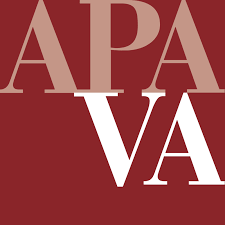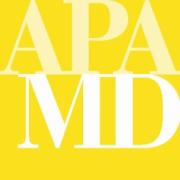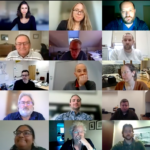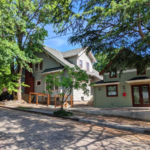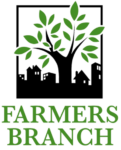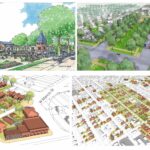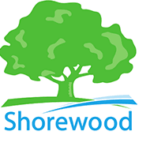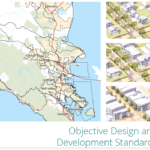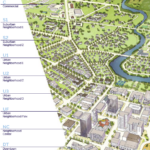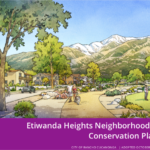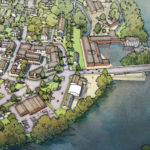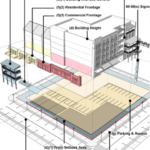FBC 201: Placemaking with Form-Based Codes – Northern Virginia October 29-30

“Downtown Leesburg, VA”by joseph a is licensed under CC BY-NC-SA 2.0
Summary
FBC 201: Placemaking with Form-Based Codes
Tuesday, October 29th & Wednesday, October 30th, 2019
Leesburg Town Hall
25 West Market Street
Leesburg, VA 20176
Eligible for 16 AICP CM
Note: The one-day class: FBC 101: The ABCs of Form-Based Codes – or FBC 101 online – is prerequisite for this class.
This two-day course provides an in-depth understanding of how to guide good urban form through a regulatory framework. Participants learn to create form-based codes by drawing upon an area’s best urban elements to conceptualize the elements that shape public space and community character. Instructors delve into the basics of urban form, combining lecture and case studies with “hands-on” participatory exercises in the essential tasks of coding.
The course uses presentations and interactive discussions to enhance participants’ knowledge of urban design at the scale of the building and building types, the street and street types, the block and the neighborhood. Participants work together to apply theory and practice as they create a vision and regulatory elements of plan for an illustrative area. Instructors and panelists discuss unexpected design challenges, and explore design possibilities for greenfield sites, redevelopment areas, already built-out communities and regional plans.
Click the tabs above to see agenda and instructors.
Lodging
19 South King Street
Leesburg, VA 20175
117 Fort Evans Road NE
Leesburg, VA 20176
115 Fort Evans Road NE
Leesburg, VA 20176
Agenda
The following is a final agenda.
8:30 – 9:00 AM Light Breakfast and Registration
9:00 – 9:30 AM Welcome / Course Highlights / Introductory Discussion — Tyler Quinn-Smith
Topics covered: An introduction to FBCI and the course; participants’ objectives and desired takeaways; coding issues in your community.
9:30 – 10:30 AM Urban Form Basics: Streets & Other Urban Places — Geoff Ferrell
Topics covered: Street-Space, the core concept of form-based coding and the fundamental contrast with conventional zoning. Also, the network, context, and types of streets; the elements of street cross-sections; overcoming barriers to complete streets; and resources for creating great streets.
10:30 – 10:45 AM Break
10:45 – 11:30 AM Urban Form Basics: Private Building Principles & Types — Mike Weich
Topics covered: The role of buildings to form the public realm and frame and protect the private realm; the palette of building types that make up a city and how they work.
11:30 AM – 12:15 PM Urban Form Basics: The Urban Block — Geoff Ferrell
Topics covered: The structure of the urban block and how it organizes public space vs. private space, (buildings, streets, rear service). How urban blocks define the physical structure of the places we inhabit
12:15 – 1:15 PM Lunch on Your Own
1:15 – 2:00 PM Small-Scale Urban Design Examples — Geoff Ferrell & Mike Weich
Topics covered: Built examples of projects at the scale of street, block, building.
2:00 – 2:45 PM Urban Form Basics: The Urban Neighborhood — Geoff Ferrell
Topics covered: The role of neighborhoods in healthy communities; the neighborhood as the basic building block of towns and cities; and the mix of uses and hierarchy, function and location of appropriate streets.
2:45 – 3:30 PM Large-Scale Urban Design Examples — Geoff Ferrell & Mike Weich
Topics covered: Examples of larger scale projects and how the design principles in form-based codes are applied to real projects. Q&A.
3:30 – 3:45 PM Break
3:45 – 5:45 PM Exercise: Part One – Learning How to Look: Understanding Community Character & Context — All Instructors
Attendees will participate in a two-part exercise that explores the fundamental process of form-based coding. Class participants will learn how to analyze the fundamental character features of the study area and decide what to regulate.
In Part One of the exercise, participants will tour a section of Loudoun Street with local planners and form-based codes experts, take notes and discuss the features that should be reflected in the revised code.
5:45 PM End of Day One
DAY TWO
8:30 – 9:00 AM Light Breakfast
9:00 – 9:30 AM Instructor led Discussion on Exercise Part One — All Instructors
Topics covered: Participants will share their notes and insights from the exercise.
9:30 – 10:30 AM FBCs : Creativity and Constraints — Geoff Ferrell
Topics covered: What a code constrains and what it doesn’t; creativity in the “street wall;” FBCs and design guidelines; architectural creativity under a form-based code. Mistakes made, lessons learned.
10:30 – 10:45 AM Break
10:45 AM – 12:45 PM Exercise: Part Two – Selecting and Writing Regulations — All Instructors
Topics covered: Selecting and synthesizing the fundamental character elements of the study area. Using these elements to define the form of streets, blocks, buildings and open space in three dimensions.
12:45 – 1:45 PM Lunch on Your Own
1:45 – 2:30 PM Instructor Comments on Exercise Part Two
2:30 – 3:30 PM A Virginia Perspective on Form-Based Coding — Geoff Ferrell, Moderator
Panelists: Susan Berry Hill, Town of Leesburg
Adam Shellenberger, Fauquier County
Jennifer Smith, Arlington County
Topics covered: Form-based codes have gained positive momentum in Virginia as a legitimate alternative to Euclidian zoning. Guest speakers will share their experiences with form-based coding in Leesburg, Fauquier County, and Arlington County.
3:30 – 3:45 PM Break
3:45 – 4:30 PM Roundtable Discussion and Q & A — All Instructors
Topics covered: Broad theme of sustainability. How form-based codes are used to promote walkable, mixed-use urbanism. Energy policy, resiliency and return on investment for local governments. Local questions and concerns. “Parking Lot” issues identified throughout the class. Looking ahead to FBC 301.
4:30 PM End of Course
Instructors
FBCI draws upon national experts, including urban designers and planners with broad experience in all aspects of form-based coding.
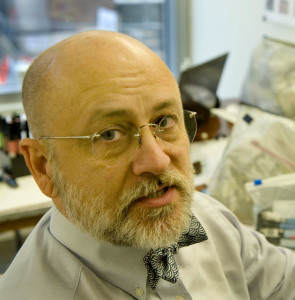
Geoffrey Ferrell is one of the originators of the modern practice of Form-Based Codes. His work ranges from site-specific urban designs to zoning-toolkits to replace Euclidean zones – development regulations that emphasize clarity for end-users. His experience with adopted municipal form-based codes goes back to 1991 with the Metropolitan Dade County Traditional Neighborhood Ordinance, and his experience includes the master plan & form-based code for the redevelopment of the Columbia Pike Corridor in Arlington, Virginia. His firm’s Form-Based Codes for the Farmers Branch, Texas, Station Area and Heart of Peoria Form-Districts in Peoria, Illinois, received the Richard Driehaus Form-Based Code Award in 2007 and 2010, respectively. Ferrell Madden’s work is featured in the books Form-Based Codes, The New Urbanism, and Retrofitting Suburbia.
Mr. Ferrell holds a Master of Architecture degree with a Certificate in American Urbanism from the University of Virginia, a Bachelor of Architecture from Oregon School of Design, and a Bachelor of Science in Public Policy from Willamette University. He is a Charter Member of the Congress for the New Urbanism and a Charter Board Member for the Form-Based Codes Institute.
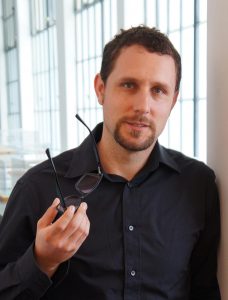
Mike Weich is a senior project manager and designer at DPZ with over 14 years of experience in planning and urban and architectural design, including regional plans, mixed-use new towns, transit-oriented development and suburban retrofit projects in the United States, Canada, Asia, Europe, and the Middle East. He has played a key role in the planning, design, and management of several large DPZ projects in the Middle East.Michael joined DPZ in 2006 and works in the firm’s Kentlands office in Gaithersburg, Maryland. Weich and his family live in Kentlands, one of DPZ’s first Traditional Neighborhood Developments. He is an active member in the community, and manages the Kentlands Community Garden, a project he helped to design and build and was awarded a “Friend of the Foundation’ award for in 2014 as well as a City of Gaithersburg Environmental Award in 2015 and 2016.
To see all FBCI instructors, please visit our website, www.formbasedcodes.org
We accept Visa, MasterCard, and Discover.
REGISTRATION IS CLOSED FOR THIS CLASS.
Thanks to our sponsor!
Thanks to our marketing partners!


